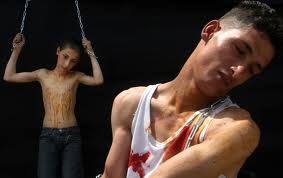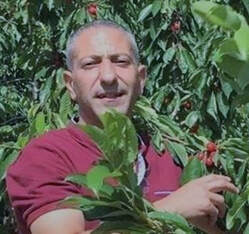16 oct 2019
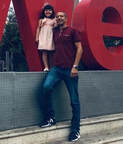
On October 15, 2019, Samer Arbeed's detention was extended for another eight days following a court session that was held in hospital without allowing his lawyer to attend it.
According to Addameer Association for Prisoner Support and Human Rights, the court hearing was held in Hadassah Hospital’s intensive care unit, where Samer was transferred on September 27 due to life-threatening injuries, which he sustained during his exposure to extreme torture by Israeli interrogators in al-Maskubiya interrogation and detention center.
Samer has regained consciousness and was disconnected from a respirator, but he continues to lie in the intensive care unit at Hadassah Hospital, Addameer said on its website.
Samer’s medical report details multiple serious injuries. His kidneys have seriously malfunctioned, requiring him to be on regular dialysis. Additionally, he suffers from pains and swelling all over his body, particularly in his extremities, and he is still unable to move his legs. Eleven of his ribs are also fractured.
Samer are still being denied legal counsel, while Israeli officers continue to interrogate him while he is in the intensive car unit.
Addameer said it was permitted by Israeli officials who held the court session at the hospital to publicly comment on and publish information about Samer’s health condition following a previous gag order.
Addameer: “Update on the health status of tortured detainee Samer Al-Arbeed”
By Addameer Prisoner Support And Human Rights Association: On 15 October 2019, Samer Arbeed‘s detention was extended for another eight days, following a court session that barred Samer’s lawyer from being present.
The hearing was held in Hadassah Hospital’s Intensive Care Unit (ICU), where Samer was transferred on 27 September due to life-threatening injuries from being tortured during interrogation in Al-Moscobiya Interrogation Center.
Samer has regained consciousness and was disconnected from artificial respirators, yet he continues to lie in the intensive care unit at Hadassah Hospital. Samer’s medical report details a multitude of serious injuries.
His kidneys are seriously malfunctioning, requiring him to be on constant and regular dialysis treatment. Additionally, he suffers from pain and swelling all over his body, particularly in his extremities, and he is still unable to move his legs. Eleven of his ribs are fractured.
Samer continues to be denied legal counsel despite his serious health condition. Furthermore, the Israeli Occupation Forces have continued to interrogate him while he lies in the ICU.
It should be noted that the 15 October court session also permitted Addameer to publicly comment on and publish information about Samer’s health condition despite an ongoing gag order regarding multiple detainees.
The gag order requires all hearings to be closed to the public and denies the right to publish any information regarding them. The Jerusalem Magistrate Court denied Addameer’s appeal to repeal the gag order, banning Addameer’s ability to publish information about these cases.
According to Addameer Association for Prisoner Support and Human Rights, the court hearing was held in Hadassah Hospital’s intensive care unit, where Samer was transferred on September 27 due to life-threatening injuries, which he sustained during his exposure to extreme torture by Israeli interrogators in al-Maskubiya interrogation and detention center.
Samer has regained consciousness and was disconnected from a respirator, but he continues to lie in the intensive care unit at Hadassah Hospital, Addameer said on its website.
Samer’s medical report details multiple serious injuries. His kidneys have seriously malfunctioned, requiring him to be on regular dialysis. Additionally, he suffers from pains and swelling all over his body, particularly in his extremities, and he is still unable to move his legs. Eleven of his ribs are also fractured.
Samer are still being denied legal counsel, while Israeli officers continue to interrogate him while he is in the intensive car unit.
Addameer said it was permitted by Israeli officials who held the court session at the hospital to publicly comment on and publish information about Samer’s health condition following a previous gag order.
Addameer: “Update on the health status of tortured detainee Samer Al-Arbeed”
By Addameer Prisoner Support And Human Rights Association: On 15 October 2019, Samer Arbeed‘s detention was extended for another eight days, following a court session that barred Samer’s lawyer from being present.
The hearing was held in Hadassah Hospital’s Intensive Care Unit (ICU), where Samer was transferred on 27 September due to life-threatening injuries from being tortured during interrogation in Al-Moscobiya Interrogation Center.
Samer has regained consciousness and was disconnected from artificial respirators, yet he continues to lie in the intensive care unit at Hadassah Hospital. Samer’s medical report details a multitude of serious injuries.
His kidneys are seriously malfunctioning, requiring him to be on constant and regular dialysis treatment. Additionally, he suffers from pain and swelling all over his body, particularly in his extremities, and he is still unable to move his legs. Eleven of his ribs are fractured.
Samer continues to be denied legal counsel despite his serious health condition. Furthermore, the Israeli Occupation Forces have continued to interrogate him while he lies in the ICU.
It should be noted that the 15 October court session also permitted Addameer to publicly comment on and publish information about Samer’s health condition despite an ongoing gag order regarding multiple detainees.
The gag order requires all hearings to be closed to the public and denies the right to publish any information regarding them. The Jerusalem Magistrate Court denied Addameer’s appeal to repeal the gag order, banning Addameer’s ability to publish information about these cases.
13 oct 2019
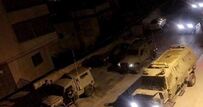
Dozens of Palestinian young men suffered from their exposure to tear gas during violent clashes at dawn Sunday with the Israeli occupation forces (IOF) in Ramallah city.
The clashes took place in Attira neighborhood of Ramallah after the IOF broke into and ransacked the house of prisoner Samer al-Arbeed. video
Similar clashes also happened at the main entrance to Surda town, northeast of Ramallah, during an IOF campaign, with no reported injuries.
The clashes took place in Attira neighborhood of Ramallah after the IOF broke into and ransacked the house of prisoner Samer al-Arbeed. video
Similar clashes also happened at the main entrance to Surda town, northeast of Ramallah, during an IOF campaign, with no reported injuries.
12 oct 2019
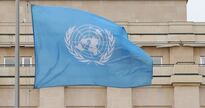
The Office of the United Nations High Commissioner for Human Rights (OHCHR) has expressed concern over the exposure of Palestinian prisoner Samer Arbeed to extreme torture by Israeli interrogators.
“The UN Human Rights Office notes with concern the alleged torture of a 44-year-old Palestinian man, Samer Al Arbeed, who was arrested by Israeli Security Forces on 25 September as a suspect in a bomb explosion that killed a 17-year old Israeli girl near Dolev settlement in the occupied West Bank,” spokesman for the UN High Commissioner Rupert Colville said on Friday.
“Arbeed remains in the hospital in an induced coma and on artificial respiration, with critical injuries sustained after his arrest, including broken ribs and severe kidney failure,” a statement released by Colville said.
“This development is placing a spotlight on serious gaps and failings in Israel’s laws and practices in relation to its unequivocal obligation under international law to eradicate torture and cruel and inhuman treatment.”
“Given the severity of Al A’rbeed’s injuries, we call for the immediate opening of a criminal investigation into the case.”
“We have also received information that at least three more people arrested in the context of the same investigation have been held in incommunicado detention for a prolonged period of time,” the statement added.
OHCHR called upon “Israel to revise its laws, policies and practices to bring them in line with its obligations under international law, in particular the Convention Against Torture, and ensure that all instances and allegations of torture and ill-treatment are investigated promptly, independently, effectively and impartially.”
“The UN Human Rights Office notes with concern the alleged torture of a 44-year-old Palestinian man, Samer Al Arbeed, who was arrested by Israeli Security Forces on 25 September as a suspect in a bomb explosion that killed a 17-year old Israeli girl near Dolev settlement in the occupied West Bank,” spokesman for the UN High Commissioner Rupert Colville said on Friday.
“Arbeed remains in the hospital in an induced coma and on artificial respiration, with critical injuries sustained after his arrest, including broken ribs and severe kidney failure,” a statement released by Colville said.
“This development is placing a spotlight on serious gaps and failings in Israel’s laws and practices in relation to its unequivocal obligation under international law to eradicate torture and cruel and inhuman treatment.”
“Given the severity of Al A’rbeed’s injuries, we call for the immediate opening of a criminal investigation into the case.”
“We have also received information that at least three more people arrested in the context of the same investigation have been held in incommunicado detention for a prolonged period of time,” the statement added.
OHCHR called upon “Israel to revise its laws, policies and practices to bring them in line with its obligations under international law, in particular the Convention Against Torture, and ensure that all instances and allegations of torture and ill-treatment are investigated promptly, independently, effectively and impartially.”
11 oct 2019
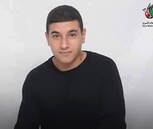
The Israeli occupation forces at dawn Friday broke into the family house of the Palestinian detainee Yazan Mghames in Birzeit town north of Ramallah City.
Eyewitnesses reported seeing the IOF soldiers taking the measurements of the house in preparation for demolishing it.
Mghames, a student at Birzeit University, was arrested by Israeli occupation forces on 11 September.
The Israeli Intelligence Service (Shin Bet) at the end of September announced that it had arrested a Palestinian cell affiliated with the Popular Front for the Liberation of Palestine and accused them of planting a bomb in Ein Bubin area, west of Ramallah, on 23 August killing an Israeli settler and injuring two others.
The Shin Bet claimed that Mghames was a member of the cell responsible for the blast.
Israel demolishes the family homes of Palestinian martyrs, detainees and resistance fighters as part of the collective punishment policy it pursues against the Palestinians in the occupied West Bank.
Eyewitnesses reported seeing the IOF soldiers taking the measurements of the house in preparation for demolishing it.
Mghames, a student at Birzeit University, was arrested by Israeli occupation forces on 11 September.
The Israeli Intelligence Service (Shin Bet) at the end of September announced that it had arrested a Palestinian cell affiliated with the Popular Front for the Liberation of Palestine and accused them of planting a bomb in Ein Bubin area, west of Ramallah, on 23 August killing an Israeli settler and injuring two others.
The Shin Bet claimed that Mghames was a member of the cell responsible for the blast.
Israel demolishes the family homes of Palestinian martyrs, detainees and resistance fighters as part of the collective punishment policy it pursues against the Palestinians in the occupied West Bank.
8 oct 2019

The Palestinian Center For Human Rights: On 8 October 2019, the Palestinian Center for Human Rights (PCHR) sent an urgent appeal [pdf] to the United Nations (UN) Special Rapporteur on the situation of human rights in the Occupied Palestinian Territory, Mr. Michael Lynk, and UN Special Rapporteur on torture and other cruel, inhuman or degrading treatment or punishment, Mr. Nils Melzer, concerning the situation of Palestinian Detainee Samer al-Arbid, a 44 year old Palestinian, who was hospitalized after undergoing interrogation with Israeli internal security service (Shin Bet).
In its letter [pdf], PCHR explained that the use of torture by the Shin Bet to investigate Palestinian prisoners is still permissible as the Israeli High Court in 1999 ruled that torture can be used in “ticking time-bomb” circumstances and gave its tacit approval to the use of the defense of necessity contained in section 34(11) of the Penal Law (1977).
PCHR stressed that the extraordinary measures used by the interrogators which led to the deterioration of Samer’ medical condition, are in violation of Israel’s obligations under Article 2(2) of the Convention against Torture, which provides that the prohibition of torture is absolute and non-derogable and that no exceptional circumstances whatsoever may be invoked to justify acts of torture.
Moreover, it constitutes a grave breach of Article 147 of the Fourth Geneva Convention and Article 11 of the First Additional Protocol to the Geneva Conventions and amounts to a war crime under Article 85 of the Protocol.
PCHR expressed its concern that resuming Samer al-Arbid’s interrogation can lead to a further deterioration in his health and endanger his life. Israel has many precedents proving the security officers involvement in torture against dozens of prisoners, the latest of which was the recent death of Nassar Majed Taqatah (31), from Bethlehem, during his interrogation, only one month after his arrest.
PCHR called on the Special Rapporteurs to publicly condemn Israel’s use of extra-ordinary measures, which amount to torture, against Palestinian prisoners and detainees, including Samer al-Arabid, and to exert pressure to prevent Israel from employing these extra-ordinary measures again if his condition improves and his interrogation continues.
To read PCHR’s full submission, click here [pdf].
In its letter [pdf], PCHR explained that the use of torture by the Shin Bet to investigate Palestinian prisoners is still permissible as the Israeli High Court in 1999 ruled that torture can be used in “ticking time-bomb” circumstances and gave its tacit approval to the use of the defense of necessity contained in section 34(11) of the Penal Law (1977).
PCHR stressed that the extraordinary measures used by the interrogators which led to the deterioration of Samer’ medical condition, are in violation of Israel’s obligations under Article 2(2) of the Convention against Torture, which provides that the prohibition of torture is absolute and non-derogable and that no exceptional circumstances whatsoever may be invoked to justify acts of torture.
Moreover, it constitutes a grave breach of Article 147 of the Fourth Geneva Convention and Article 11 of the First Additional Protocol to the Geneva Conventions and amounts to a war crime under Article 85 of the Protocol.
PCHR expressed its concern that resuming Samer al-Arbid’s interrogation can lead to a further deterioration in his health and endanger his life. Israel has many precedents proving the security officers involvement in torture against dozens of prisoners, the latest of which was the recent death of Nassar Majed Taqatah (31), from Bethlehem, during his interrogation, only one month after his arrest.
PCHR called on the Special Rapporteurs to publicly condemn Israel’s use of extra-ordinary measures, which amount to torture, against Palestinian prisoners and detainees, including Samer al-Arabid, and to exert pressure to prevent Israel from employing these extra-ordinary measures again if his condition improves and his interrogation continues.
To read PCHR’s full submission, click here [pdf].
7 oct 2019
|
|
Rita, a beautiful 8-year-old girl asks her mother to explain to her what does “critical condition” mean? Rita wanted to know more than what Wikipedia provides as definition of the word, as she tried to figure it out on her own.
This little girl was earlier informed of the reason her dad never came back to pick her up from school on September 25 and that he was taken to hospital and now “critical condition” is the description she hears about him. All she knows is that he was fine when he dropped her off at school on the morning of that day. Noura stares at her daughter’s face speechless, not being able to explain the meaning of the word to her. “I did not know what to tell her”; the words would not come out. |
In sincere prayers, several Palestinian churches held mass to pray for Samer Arbeed, the 44-year-old Palestinian from Ramallah who was kidnapped from his car on September 25th, 2019 by four armed Israeli men in front of his wife.
Since then Samer has not been seen by his family and is presently being hospitalized as a result of being severely tortured while in Israeli custody.
According to Israeli media, he is in “critical condition” and remains unconscious as of the writing of this statement. Also according to Israeli media, Samer is being kept alive by an artificial respirator, and suffers from broken ribs and kidney failure.
“Samer is a kind father and a devoted husband”. “He also takes care of his old mother and sick brother”, she spoke with eyes full of tears. He is also an active member in Palestinian NGOs one of which is the Civil Society Team for Enhancing Public Budget Transparency.
It is worth noting that Samer was arrested on August 26th, 2019 when heavily-armed Israeli soldiers raided his house late at night and abducted him in front of his wife and children. He was detained for nearly a week with no charges after which he was released by a court order.
His abduction on the 25th of September was just as abrupt and traumatic for the whole family with much more dire consequences and no end in sight.
Samer and Noura had dropped off their children to school and were on their way when they noticed that they were being followed.
As their car stopped, four armed men attacked Samer by harshly beating him on the neck and other parts of his body before kidnapping him. Two hours later, Noura was also taken and detained at an Israeli checkpoint near the town of Qalandia.
In addition, Israeli soldiers raided Samer and Noura’s house in their absence and wreaked their belongings.
“Only God and Israeli officials know what happened between the 25th until the 27th of September, the date Samer was transferred to the Hadassa Hospital and placed under strict security measures including being denied access to his lawyer”, Noura stated.
According to his lawyer, Samer began to experience severe chest pains and constant vomiting the following day after his arrest. He repeatedly made complaints to the judge, but was completely ignored by the Israeli court.
In regard to visitations: as for the writing of this statement, Samer’s wife, Noura continues to be denied visitation rights to see her husband even while in hospital. In addition, she says that his medical condition is being kept a secret,“The occupation is not allowing us to examine his medical condition and refuses to issue a medical report concerning his condition”.
Noura fears for her husband’s life and holds the Israeli authorities responsible. Her other fear is for her children who have been subjected to the brutal attack on their father by the Israeli occupation authorities.
Despite all of the above, she remains hopeful that justice will prevail and that her family will be reunited: “with all my heart, I pray that he will recover soon and come back home and be with his children”.
In this regard, we would like to call attention to Israeli policies concerning Palestinian detainees, and in particular to the Israeli court order granting the Israeli Security Agency, better known as Shabak, special permission to use “exceptional ways” (in other words, torture) when interrogating “special cases” of Palestinian detainees.
We also call on the international community to put pressure on Israel to end these practices that break the prisoner’s spirit.
This policy was applied not only on Samer Arbeed, but on a number of Palestinians who were arrested with no news about their status, and death was the end result at time.
According to the Palestinian Society Prisoner’s Club (NGO) 73 prisoners were killed due to torture in Israeli jails since 1967.
“For years, the Israeli establishment has tried to conceal what happens in interrogation rooms. When interrogators use torture – or “special means,” to use the establishment’s term – the concealment efforts are redoubled.
Even when testimony of torture reaches the public, the system does everything it can to leave the interrogators’ role in darkness, including signing lenient plea bargains with suspects who were tortured to ensure that the conspiracy of silence remains unbroken” as reported by Haaretz’s.
In 1999, the High Court of Justice banned torture, which was permitted until then.
But subsequent regulations issued by the Attorney General Elyakim Rubinstein legitimized using it with approval by senior officials.” An investigative report by Haaretz in May 2015 found that use of torture was on the rise.
The legally-sanctioned torture of Samer during interrogation further exposes the complicity of the Israeli authorities, including its judiciary, in a systematic violation of the human Right to be Free from Torture. “It is utterly outrageous that the use of torture during interrogations continues to be sanctioned by the Israeli authorities” as stated by Amnesty International.
Also, under international treaties, which legally bind Israel, “the use of torture is not to be justified under any circumstances”. Samer’s case is one example that shamefully exposes Israel’s judiciary’s claim of upholding human rights treaties”
Palestinian civil society and Human rights organizations issued an appeal to civil society organizations worldwide and international bodies, as well as to the UN Secretary General and other United Nations committees and agencies, to put greater efforts to end torture applied on Palestinians by the Israeli occupation.
The organizations also called for the immediate release of Samer Arbeed in addition to holding the Israeli occupation authorities accountable for all their crimes against Palestinians, as stipulated in Articles 146 and 147 of the Fourth Geneva Convention.
Written by: Hind Shreideh /wattan TV
Since then Samer has not been seen by his family and is presently being hospitalized as a result of being severely tortured while in Israeli custody.
According to Israeli media, he is in “critical condition” and remains unconscious as of the writing of this statement. Also according to Israeli media, Samer is being kept alive by an artificial respirator, and suffers from broken ribs and kidney failure.
“Samer is a kind father and a devoted husband”. “He also takes care of his old mother and sick brother”, she spoke with eyes full of tears. He is also an active member in Palestinian NGOs one of which is the Civil Society Team for Enhancing Public Budget Transparency.
It is worth noting that Samer was arrested on August 26th, 2019 when heavily-armed Israeli soldiers raided his house late at night and abducted him in front of his wife and children. He was detained for nearly a week with no charges after which he was released by a court order.
His abduction on the 25th of September was just as abrupt and traumatic for the whole family with much more dire consequences and no end in sight.
Samer and Noura had dropped off their children to school and were on their way when they noticed that they were being followed.
As their car stopped, four armed men attacked Samer by harshly beating him on the neck and other parts of his body before kidnapping him. Two hours later, Noura was also taken and detained at an Israeli checkpoint near the town of Qalandia.
In addition, Israeli soldiers raided Samer and Noura’s house in their absence and wreaked their belongings.
“Only God and Israeli officials know what happened between the 25th until the 27th of September, the date Samer was transferred to the Hadassa Hospital and placed under strict security measures including being denied access to his lawyer”, Noura stated.
According to his lawyer, Samer began to experience severe chest pains and constant vomiting the following day after his arrest. He repeatedly made complaints to the judge, but was completely ignored by the Israeli court.
In regard to visitations: as for the writing of this statement, Samer’s wife, Noura continues to be denied visitation rights to see her husband even while in hospital. In addition, she says that his medical condition is being kept a secret,“The occupation is not allowing us to examine his medical condition and refuses to issue a medical report concerning his condition”.
Noura fears for her husband’s life and holds the Israeli authorities responsible. Her other fear is for her children who have been subjected to the brutal attack on their father by the Israeli occupation authorities.
Despite all of the above, she remains hopeful that justice will prevail and that her family will be reunited: “with all my heart, I pray that he will recover soon and come back home and be with his children”.
In this regard, we would like to call attention to Israeli policies concerning Palestinian detainees, and in particular to the Israeli court order granting the Israeli Security Agency, better known as Shabak, special permission to use “exceptional ways” (in other words, torture) when interrogating “special cases” of Palestinian detainees.
We also call on the international community to put pressure on Israel to end these practices that break the prisoner’s spirit.
This policy was applied not only on Samer Arbeed, but on a number of Palestinians who were arrested with no news about their status, and death was the end result at time.
According to the Palestinian Society Prisoner’s Club (NGO) 73 prisoners were killed due to torture in Israeli jails since 1967.
“For years, the Israeli establishment has tried to conceal what happens in interrogation rooms. When interrogators use torture – or “special means,” to use the establishment’s term – the concealment efforts are redoubled.
Even when testimony of torture reaches the public, the system does everything it can to leave the interrogators’ role in darkness, including signing lenient plea bargains with suspects who were tortured to ensure that the conspiracy of silence remains unbroken” as reported by Haaretz’s.
In 1999, the High Court of Justice banned torture, which was permitted until then.
But subsequent regulations issued by the Attorney General Elyakim Rubinstein legitimized using it with approval by senior officials.” An investigative report by Haaretz in May 2015 found that use of torture was on the rise.
The legally-sanctioned torture of Samer during interrogation further exposes the complicity of the Israeli authorities, including its judiciary, in a systematic violation of the human Right to be Free from Torture. “It is utterly outrageous that the use of torture during interrogations continues to be sanctioned by the Israeli authorities” as stated by Amnesty International.
Also, under international treaties, which legally bind Israel, “the use of torture is not to be justified under any circumstances”. Samer’s case is one example that shamefully exposes Israel’s judiciary’s claim of upholding human rights treaties”
Palestinian civil society and Human rights organizations issued an appeal to civil society organizations worldwide and international bodies, as well as to the UN Secretary General and other United Nations committees and agencies, to put greater efforts to end torture applied on Palestinians by the Israeli occupation.
The organizations also called for the immediate release of Samer Arbeed in addition to holding the Israeli occupation authorities accountable for all their crimes against Palestinians, as stipulated in Articles 146 and 147 of the Fourth Geneva Convention.
Written by: Hind Shreideh /wattan TV
3 oct 2019

Palestinian Foreign Minister Riyad Malki has called upon United Nations special rapporteurs to expose Israeli crimes committed against Palestinians especially in the wake of the severe torture of prisoner Samer al-Arbeed, who has been taken to hospital in a critical condition.
In letters sent to the Special Rapporteur on Torture, the Special Rapporteur on the Right to Health, the Working Group on Arbitrary Detention, the Special Rapporteur on Justice, and the Special Rapporteur on the State of Human Rights in the Occupied Palestinian Territory on Thursday, Malki briefed them on the suffering of the 44-year-old father of three, who is between life and death at Hadassah Medical Center in Jerusalem al-Quds.
The top Palestinian diplomat then urged the special rapporteurs to expose the Israeli crimes and to find mechanisms to hold accountable the Israeli officials responsible for Arbeed’s torture, which was done in coordination with and through the endorsement of the Tel Aviv regime and Israeli courts.
Malki stressed that the Palestinian Ministry of Foreign Affairs and Expatriates has been contacting international human rights organization and UN bodies, including the International Committee of the Red Cross (ICRC), to demand their intervention and protection of Arbeed.
In letters sent to the Special Rapporteur on Torture, the Special Rapporteur on the Right to Health, the Working Group on Arbitrary Detention, the Special Rapporteur on Justice, and the Special Rapporteur on the State of Human Rights in the Occupied Palestinian Territory on Thursday, Malki briefed them on the suffering of the 44-year-old father of three, who is between life and death at Hadassah Medical Center in Jerusalem al-Quds.
The top Palestinian diplomat then urged the special rapporteurs to expose the Israeli crimes and to find mechanisms to hold accountable the Israeli officials responsible for Arbeed’s torture, which was done in coordination with and through the endorsement of the Tel Aviv regime and Israeli courts.
Malki stressed that the Palestinian Ministry of Foreign Affairs and Expatriates has been contacting international human rights organization and UN bodies, including the International Committee of the Red Cross (ICRC), to demand their intervention and protection of Arbeed.
